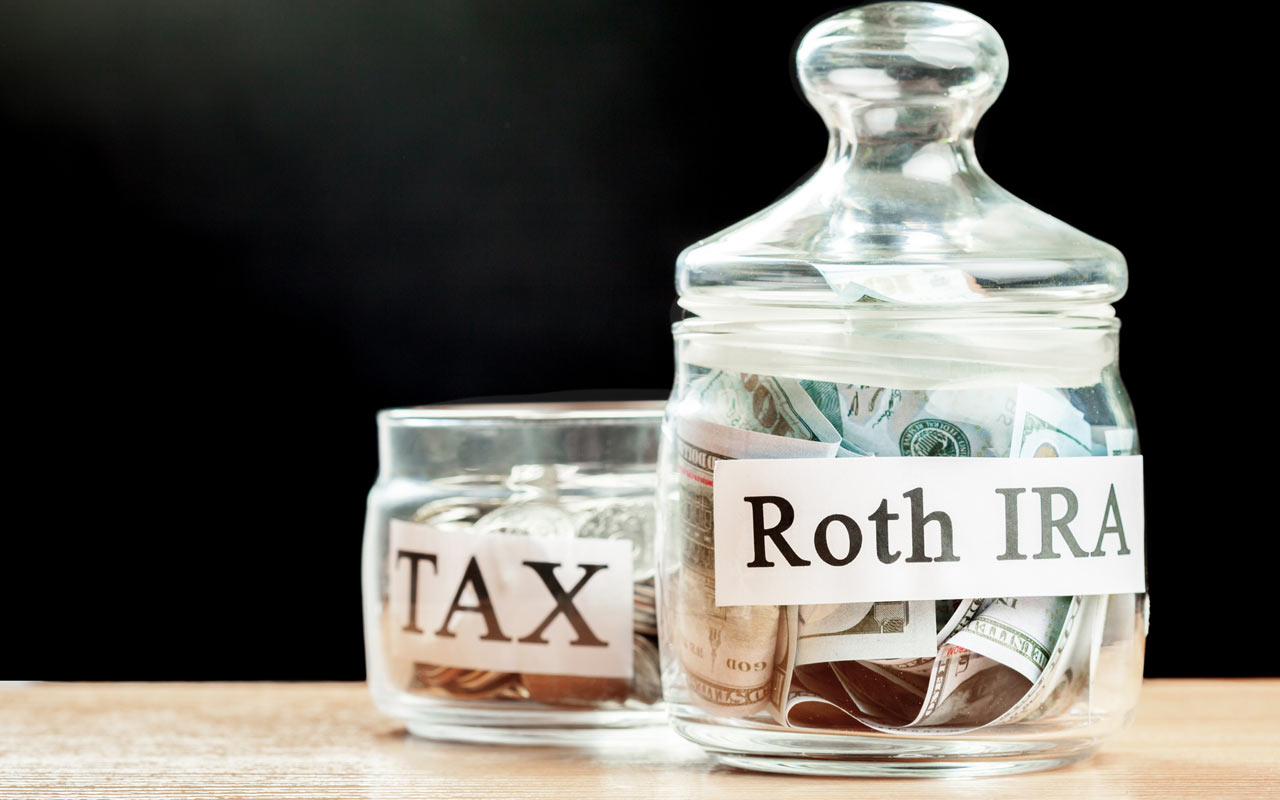5 Ways to Avoid Taxes on Social Security Benefits
You may need to pay income taxes on a portion of your Social Security benefits, based on your income.


Profit and prosper with the best of Kiplinger's advice on investing, taxes, retirement, personal finance and much more. Delivered daily. Enter your email in the box and click Sign Me Up.
You are now subscribed
Your newsletter sign-up was successful
Want to add more newsletters?

Delivered daily
Kiplinger Today
Profit and prosper with the best of Kiplinger's advice on investing, taxes, retirement, personal finance and much more delivered daily. Smart money moves start here.

Sent five days a week
Kiplinger A Step Ahead
Get practical help to make better financial decisions in your everyday life, from spending to savings on top deals.

Delivered daily
Kiplinger Closing Bell
Get today's biggest financial and investing headlines delivered to your inbox every day the U.S. stock market is open.

Sent twice a week
Kiplinger Adviser Intel
Financial pros across the country share best practices and fresh tactics to preserve and grow your wealth.

Delivered weekly
Kiplinger Tax Tips
Trim your federal and state tax bills with practical tax-planning and tax-cutting strategies.

Sent twice a week
Kiplinger Retirement Tips
Your twice-a-week guide to planning and enjoying a financially secure and richly rewarding retirement

Sent bimonthly.
Kiplinger Adviser Angle
Insights for advisers, wealth managers and other financial professionals.

Sent twice a week
Kiplinger Investing Weekly
Your twice-a-week roundup of promising stocks, funds, companies and industries you should consider, ones you should avoid, and why.

Sent weekly for six weeks
Kiplinger Invest for Retirement
Your step-by-step six-part series on how to invest for retirement, from devising a successful strategy to exactly which investments to choose.
You may need to pay income taxes on a portion of your Social Security benefits, based on your income. But knowing the rules and a few key strategies can help you minimize the tax hit.
Whether or not your Social Security benefits are taxable depends on your “provisional income.” This number is calculated by taking your adjusted gross income (AGI), not counting Social Security benefits, and adding in nontaxable interest and half of your Social Security benefits. If your provisional income is below $25,000 and you file taxes as single or head of household, or less than $32,000 if you file a joint return, you won’t owe taxes on your benefits. If your provisional income is between $25,000 and $34,000 and you’re single, or between $32,000 and $44,000 and you file jointly, up to 50% of your benefits may be taxable. If your provisional income is more than $34,000 and you’re single or more than $44,000 and you’re married filing jointly, up to 85% of your Social Security benefits may be taxable.
For details about how to calculate your taxable Social Security benefits, see the worksheet in IRS Publication 915, Social Security Benefits. Also see the Social Security Benefits Planner: Income Taxes and Your Social Security benefits.
The key to limiting taxes on your Social Security benefits is keeping your taxable income below certain thresholds. Consider these five tactics.

Retire to a Tax-Friendly State
Forget the goal of lowering your taxable income for a moment. This tactic lets you earn as much as you want while avoiding state – but not federal – income taxes on your Social Security benefits.
There are 13 states that tax your Social Security benefits. See our state-by-state guide to taxes on retirees to find out about your state’s rules and any special exemptions.

Give Your RMD to Charity
People who are 70½ or older can give up to $100,000 per year to charity from their traditional IRAs tax-free. The gift counts as their required minimum distribution but isn’t included in their adjusted gross income. Making this direct transfer from your IRA to charity (called a “qualified charitable distribution”) keeps your RMD out of the provisional income calculation and could help you stay below the cutoffs that determine what portion of your Social Security benefits is taxable.
For more information about QCDs, see The Rules for Making a Tax-Free Donation From an IRA.

Withdraw Money From Tax-Free Roths
Tax-free withdrawals from a Roth IRA or Roth 401(k) are not included in your AGI. So if you need to tap your retirement savings for your expenses, taking some money from a Roth can minimize the income included in the Social Security tax calculation.
Rolling over money from a traditional IRA or 401(k) to a Roth years before you start receiving Social Security benefits is a good way to avoid taxes later in retirement. You’ll have to pay income taxes in the year of the conversion, but you can tap the account tax-free after that. And Roth IRAs don’t have required minimum distributions, which can jack up your taxable income to levels at which your Social Security benefits become taxable.

Buy a QLAC
You can invest up to $130,000 (or 25% of your balance) from your IRA or 401(k) in a special version of a deferred-income annuity called a Qualified Longevity Annuity Contract (QLAC). Money in a QLAC is ignored when figuring your RMD, so you can reduce the size of your RMD and lower your taxable income for the year. You can invest money in the QLAC at any age, and you will receive annual payouts for your lifetime starting at the age you designate in the future – often in your seventies or eighties. Be aware that you can’t avoid taxes forever on this money. Uncle Sam requires that annual payouts from the QLAC must start no later than age 85, at which point they’re included in your taxable income along with any other RMDs. See A Tax-Friendly Way to Get Income for Life for more information about QLACs.

Don’t Overload on Income Investments
Keep track of the income that your investments outside of your retirement accounts generate. Having a lot of dividend and interest income or capital gains distributions could boost your AGI enough to make a larger portion of your Social Security benefits taxable. Even nontaxable interest, such as the interest on municipal bonds, is included when calculating the tax on your Social Security benefits. If you’re close to the income thresholds at which more of your Social Security benefits will get taxed and you don’t need the income to live on, consider moving some of your money within taxable accounts into growth-oriented investments that don’t generate as much taxable income each year.
Profit and prosper with the best of Kiplinger's advice on investing, taxes, retirement, personal finance and much more. Delivered daily. Enter your email in the box and click Sign Me Up.

As the "Ask Kim" columnist for Kiplinger's Personal Finance, Lankford receives hundreds of personal finance questions from readers every month. She is the author of Rescue Your Financial Life (McGraw-Hill, 2003), The Insurance Maze: How You Can Save Money on Insurance -- and Still Get the Coverage You Need (Kaplan, 2006), Kiplinger's Ask Kim for Money Smart Solutions (Kaplan, 2007) and The Kiplinger/BBB Personal Finance Guide for Military Families. She is frequently featured as a financial expert on television and radio, including NBC's Today Show, CNN, CNBC and National Public Radio.
-
 Dow Adds 1,206 Points to Top 50,000: Stock Market Today
Dow Adds 1,206 Points to Top 50,000: Stock Market TodayThe S&P 500 and Nasdaq also had strong finishes to a volatile week, with beaten-down tech stocks outperforming.
-
 Ask the Tax Editor: Federal Income Tax Deductions
Ask the Tax Editor: Federal Income Tax DeductionsAsk the Editor In this week's Ask the Editor Q&A, Joy Taylor answers questions on federal income tax deductions
-
 States With No-Fault Car Insurance Laws (and How No-Fault Car Insurance Works)
States With No-Fault Car Insurance Laws (and How No-Fault Car Insurance Works)A breakdown of the confusing rules around no-fault car insurance in every state where it exists.
-
 Should You Do Your Own Taxes This Year or Hire a Pro?
Should You Do Your Own Taxes This Year or Hire a Pro?Taxes Doing your own taxes isn’t easy, and hiring a tax pro isn’t cheap. Here’s a guide to help you figure out whether to tackle the job on your own or hire a professional.
-
 Don't Overpay the IRS: 6 Tax Mistakes That Could Be Raising Your Bill
Don't Overpay the IRS: 6 Tax Mistakes That Could Be Raising Your BillTax Tips Is your income tax bill bigger than expected? Here's how you should prepare for next year.
-
 Will IRS Budget Cuts Disrupt Tax Season? What You Need to Know
Will IRS Budget Cuts Disrupt Tax Season? What You Need to KnowTaxes The 2026 tax season could be an unprecedented one for the IRS. Here’s how you can be proactive to keep up with the status of your return.
-
 3 Retirement Changes to Watch in 2026: Tax Edition
3 Retirement Changes to Watch in 2026: Tax EditionRetirement Taxes Between the Social Security "senior bonus" phaseout and changes to Roth tax rules, your 2026 retirement plan may need an update. Here's what to know.
-
 A Free Tax Filing Option Has Disappeared for 2026: Here's What That Means for You
A Free Tax Filing Option Has Disappeared for 2026: Here's What That Means for YouTax Filing Tax season officially opens on January 26. But you'll have one less way to submit your tax return for free. Here's what you need to know.
-
 When Do W-2s Arrive? 2026 Deadline and 'Big Beautiful Bill' Changes
When Do W-2s Arrive? 2026 Deadline and 'Big Beautiful Bill' ChangesTax Deadlines Mark your calendar: Feb 2 is the big W-2 release date. Here’s the delivery scoop and what the Trump tax changes might mean for your taxes.
-
 Are You Afraid of an IRS Audit? 8 Ways to Beat Tax Audit Anxiety
Are You Afraid of an IRS Audit? 8 Ways to Beat Tax Audit AnxietyTax Season Tax audit anxiety is like a wild beast. Here’s how you can help tame it.
-
 States That Tax Social Security Benefits in 2026
States That Tax Social Security Benefits in 2026Retirement Tax Not all retirees who live in states that tax Social Security benefits have to pay state income taxes. Will your benefits be taxed?
